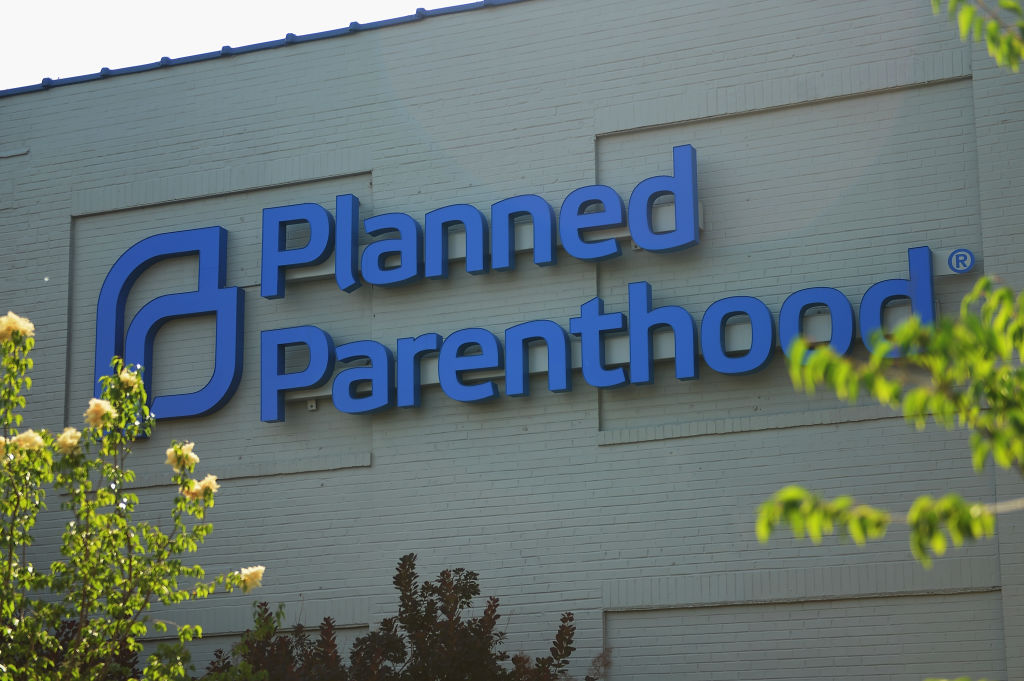Home » News » 2024 » April
News Brief
April 22, 2024Jefferson City, Mo. |
By: AP
Missouri lawmakers again try to kick Planned Parenthood off Medicaid

JEFFERSON CITY, Mo. (AP) — Lawmakers in Missouri are trying to defund Planned Parenthood by taking it off Medicaid rolls, even for the most basic of health care services. It’s a move they’ve tried for years in a state where almost all abortions are banned.
House Republican Majority Leader Jon Patterson on Monday said the chamber will send the bill to GOP Gov. Mike Parson’s desk this week.
Few states — Arkansas, Mississippi, and Texas, according to Planned Parenthood — have successfully blocked Medicaid funding for the organization.
While past efforts to kick Planned Parenthood off Missouri’s Medicaid program have been struck down by courts, this year, GOP lawmakers are taking another approach, hoping to avoid a legal showdown. And some members of the Freedom Caucus are doubling down, by threatening to abolish a tax that could cost the state an additional $2.9 billion in federal funding if they don’t get their way.
Here’s a rundown of the legislation:
WHAT WOULD THE BILL DO?
The bill aims to make it illegal for Missouri’s Medicaid program to reimburse Planned Parenthood for health care services to low-income patients, including for basic care like pap smears and cancer screenings.
“Restricting public funds from providers who are ready, willing, and skilled in delivering essential care only hurts Missourians, plain and simple,” Emily Wales, the president and CEO of Planned Parenthood Great Plains, said in a statement.
Courts have taken issue with earlier Republican bans on funding included in state budget bills. No taxpayer dollars have gone to Planned Parenthood in recent years, as cases have worked their way through the courts. A February state Supreme Court ruling found that lawmakers’ latest attempt at defunding Planned Parenthood was unconstitutional.
This year, GOP lawmakers hope to avoid another court showdown by kicking Planned Parenthood off the state’s Medicaid program through a policy bill.
WHY IS IT A PRIORITY?
Supporters say the bill is necessary to permanently stop public funding for Planned Parenthood, arguing that even though no abortions are performed in Missouri, money that goes to the organization indirectly supports clinics in other states that allow abortions.
“Not only do we believe that life is precious, but the institution of abortion hurts women,” said state Sen. Bill Eigel, who is in a Republican primary for governor.
Democrats have repeatedly countered that the measure would restrict low-income patients’ access to health care and accuse the GOP of pushing the issue to win favor among voters.
“They’re passing defund Planned Parenthood things because they feel like they can’t win their primaries without it,” Senate Democratic Minority Leader John Rizzo said.
WHAT ELSE IS AT PLAY?
The bill to kick Planned Parenthood off Medicaid in Missouri is tangled with a tax on hospitals and other health care service providers that brings billions of federal dollars to the state. Those funds are then returned to health care providers.
The program, called the Federal Reimbursement Allowance program, taxed hospitals and other health care providers about $1.5 billion this year, and got $2.9 billion back in federal Medicaid funding. Without the tax, the state will need to scrape together $1.5 billion in taxpayer dollars to get the federal match, or cut the budget by $4.4 billion.
Some Freedom Caucus members are threatening to do away with the tax — and lose the federal funding — if Planned Parenthood isn’t defunded.
The reimbursement program and efforts to defund Planned Parenthood are not directly related, but both receive Medicaid funding.
The issues became intertwined back in 2021, when the powerful anti-abortion advocacy group Missouri Right to Life began pressuring Republicans to demand the hospital tax include language banning Planned Parenthood funding.
The hospital tax brings in so much money for the state, so lawmakers often threaten to cut it when they’re bargaining for other priorities.
Republican Sen. Lincoln Hough said the tax has recently been used as “a political football.”
“We have to get it done,” Hough said. “And in this environment, when people know you have to get something done, then oftentimes they’re using that as leverage to get other things done.”
![]()






